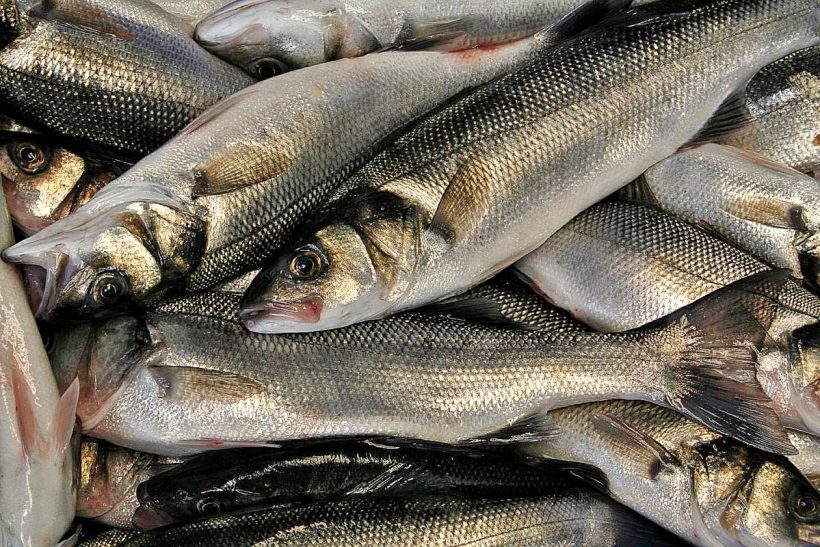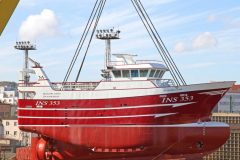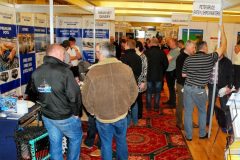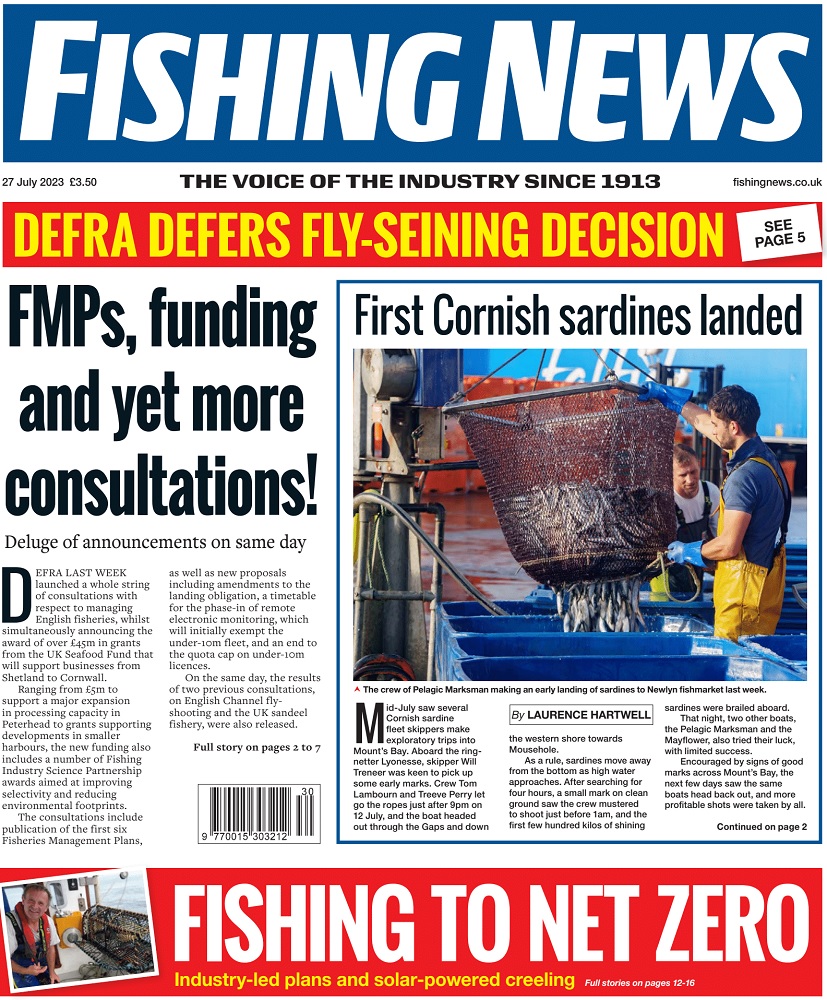A DEFRA minister and MPs agreed last week that it was essential for EU bass management to be based on scientific advice, and on the need to avoid setting commercial fishermen against recreational anglers, reports Tim Oliver.
Speaking in a three-hour Commons debate on bass, DEFRA minister Rory Stewart told MPs: “The science is at the core of the debate. It does not matter whether we are talking to commercial fishermen or the angling community: the question is, what is the state of sea bass?”
He said it had been ‘a huge achievement’ at the December Council to get all member states to agree on the MSY figure, which was a ‘vital target’.
“We have done that in a way that has attempted to respect the interests of commercial fishermen, and also to engage anglers. If we can achieve that target by 2017-2018 – and it will be tough – a lot of these issues can be revisited. If we do not achieve the right path towards that target in the coming year, we will have to revisit the catch for commercial fishermen,” said the minister.
Former UK fisheries minister Huw Irranca-Davies said the ‘fundamental’ issue was why there was such a ‘chasm’ between the science on bass and the December Council outcome.
“There is such a difference between what ICES and the science clearly says… and what the government have come up with,” he said. “This issue is not between recreational anglers and commercial fisheries… but about the balance between using the science effectively in negotiations and keeping the fisheries alive.”
North Cornwall MP Scott Mann said: “What has come out of this debate is that we must follow the science, because without fish in the water there will be no recreational or commercial fishing.”
Recreational anglers called the debate that aimed to get the government to reconsider the restrictions on bass anglers agreed at the December Council. They argued they were unfairly restrictive on sea angling. Many MPs stressed the need to avoid setting commercial fishermen against anglers.
Opening the debate, Scott Mann said the bass restrictions were ‘a symptom of a fisheries management regime that is broken’, and a CFP that was ‘unfit for purpose’.
Several MPs, including John Crudass (Dagenham and Rainham) and Sherryl Murray (South East Cornwall), defended commercial bass fishing. John Crudass said the Council of Ministers had allowed some commercial derogations from a complete ban because they knew that ‘if they take away bass from the inshore fishing fleet, they will have nothing left to catch’.
In North Devon, fishermen could not catch spurdog, cod, plaice, sole, thornback ray, blonde ray or small-eyed ray – the latter is 40% of the catch in North Devon, and there had been no consultation or warning. “Fishermen say to me, ‘What do we catch?’” John Crudass told MPs.
‘Last chance saloon’
Broxbourne MP Charles Walker said the inshore industry was now in the ‘last chance saloon’ and the problem should not become ‘a row between recreational fishermen and inshore fishermen, who have also had a pretty rough deal’.
Sheryll Murray also said both recreational fishermen and anglers had been treated badly by the ‘terrible measures’, and that many small ports and fishermen depended on both.
“Cornish mackerel handline vessels often use charter trips as a way of ensuring that they have an economically sustainable business,” said Mrs Murray.
“Commercial vessels from the south-west rely on bass in the winter months. To presume that they can make up the economic loss with other species shows a complete lack of understanding of the commercial fishing industry and its seasonal nature.
“It is essential to have joined-up fisheries management for all fishermen, and restrictions must look at the socio-economic impact on coastal communities. Recreational fishermen provide support for tourism, and commercial vessels provide support for harbour repairs and local infrastructure.”
She called on the UK minister to immediately ask the Commission to revert to the 2015 emergency measures ‘so that we can make a real assessment of the bass stock’. She also proposed that the by-catch for demersal trawlers should be increased from 1% to ‘a workable 5%, because discarded bass do not survive’.
She said preventing drift netters from catching bass was ‘vindictive’. Netters could not suddenly change to hook and line fishing, because the change of gear was too costly. The bass restrictions were a clear example of how the CFP had destroyed fishermen. “The draconian CFP has caused fishermen from Looe and elsewhere to fish alongside French boats in the south-west 12-mile limit, and see those boats land about 10 times more haddock,” said Sherryl Murray.
Maria Caulfield (Lewes) said fishermen in Newhaven had invested in new nets just before Christmas, and the netting ban had ‘decimated’ the industry in the port.
Suella Fernandes (Fareham) said commercial fishermen in her Solent constituency who used rod and lines and long lines to catch bass, did not earn the minimum wage after costs and hours worked were taken into account. “Now, they face destruction as a result of the six-month ban on bass fishing, the changes to quota sizes and the increase in the minimum landing size. They are a community on the verge of total collapse,” she said.
“Those in the industry are receiving no compensation for their loss of income or to buy new equipment. They have nowhere else to turn.”
Minster Rory Stewart said the debate had highlighted ‘the very serious tension between EU fisheries policy and UK policy, and between the interests of anglers and the interests of commercial fishermen. Navigating our way through that is quite tough’.
He said he would communicate all the arguments to fisheries minister George Eustice. “I will make sure that DEFRA takes them into account, responds to them in detail and takes action,” he said.
Scottish salmon parallel
Angus MP Mike Weir drew a parallel between the bass fisheries and the commercial and recreational salmon fisheries in Scotland.
“It is important that we do not get into a dispute between the two sides. I appreciate that anglers are very angry about some things, but we must also think of the needs of the commercial fishermen.” He said a balance was needed between both sets of interests, but that needed “a bit less megaphone diplomacy between the two sides, and a bit more getting together and seeing how we can co-operate to ensure that we are not destroying our inshore fishing fleets”.
Read more from Fishing news here.


A DEFRA minister and MPs agreed last week that it was essential for EU bass management to be based on scientific advice, and on the need to avoid setting commercial fishermen against recreational anglers, reports Tim Oliver. Speaking in a three-hour Commons debate on bass, DEFRA minister Rory Stewart told MPs: “The science is at the core of the debate. It does not matter whether we are talking to commercial fishermen or the angling community: the question is, what is the state of sea bass?” He said it had been ‘a huge achievement’ at the December Council to get all member states to agree on the MSY figure, which was a ‘vital target’. “We have done that in a way that has attempted to respect the interests of commercial fishermen, and also to engage anglers. If we can achieve that target by 2017-2018 – and it will be tough – a lot of these issues can be revisited. If we do not achieve the right path towards that target in the coming year, we will have to revisit the catch for commercial fishermen,” said the minister. Former UK fisheries minister Huw Irranca-Davies said the ‘fundamental’ issue was why there was such a ‘chasm’ between the science on bass and the December Council outcome. “There is such a difference between what ICES and the science clearly says… and what the government have come up with,” he said. “This issue is not between recreational anglers and commercial fisheries… but about the balance between using the science effectively in negotiations and keeping the fisheries alive.” North Cornwall MP Scott Mann said: “What has come out of this debate is that we must follow the science, because without fish in the water there will be no recreational or commercial fishing.” Recreational anglers called the debate that aimed to get the government to reconsider the restrictions on bass anglers agreed at the December Council. They argued they were unfairly restrictive on sea angling. Many MPs stressed the need to avoid setting commercial fishermen against anglers. Opening the debate, Scott Mann said the bass restrictions were ‘a symptom of a fisheries management regime that is broken’, and a CFP that was ‘unfit for purpose’. Several MPs, including John Crudass (Dagenham and Rainham) and Sherryl Murray (South East Cornwall), defended commercial bass fishing. John Crudass said the Council of Ministers had allowed some commercial derogations from a complete ban because they knew that ‘if they take away bass from the inshore fishing fleet, they will have nothing left to catch’. In North Devon, fishermen could not catch spurdog, cod, plaice, sole, thornback ray, blonde ray or small-eyed ray – the latter is 40% of the catch in North Devon, and there had been no consultation or warning. “Fishermen say to me, ‘What do we catch?’” John Crudass told MPs. ‘Last chance saloon’ Broxbourne MP Charles Walker said the inshore industry was now in the ‘last chance saloon’ and the problem should not become ‘a row between recreational fishermen and inshore fishermen, who have also had a pretty rough deal’. Sheryll Murray also said both recreational fishermen and anglers had been treated badly by the ‘terrible measures’, and that many small ports and fishermen depended on both. “Cornish mackerel handline vessels often use charter trips as a way of ensuring that they have an economically sustainable business,” said Mrs Murray. “Commercial vessels from the south-west rely on bass in the winter months. To presume that they can make up the economic loss with other species shows a complete lack of understanding of the commercial fishing industry and its seasonal nature. “It is essential to have joined-up fisheries management for all fishermen, and restrictions must look at the socio-economic impact on coastal communities. Recreational fishermen provide support for tourism, and commercial vessels provide support for harbour repairs and local infrastructure.” She called on the UK minister to immediately ask the Commission to revert to the 2015 emergency measures ‘so that we can make a real assessment of the bass stock’. She also proposed that the by-catch for demersal trawlers should be increased from 1% to ‘a workable 5%, because discarded bass do not survive’. She said preventing drift netters from catching bass was ‘vindictive’. Netters could not suddenly change to hook and line fishing, because the change of gear was too costly. The bass restrictions were a clear example of how the CFP had destroyed fishermen. “The draconian CFP has caused fishermen from Looe and elsewhere to fish alongside French boats in the south-west 12-mile limit, and see those boats land about 10 times more haddock,” said Sherryl Murray. Maria Caulfield (Lewes) said fishermen in Newhaven had invested in new nets just before Christmas, and the netting ban had ‘decimated’ the industry in the port. Suella Fernandes (Fareham) said commercial fishermen in her Solent constituency who used rod and lines and long lines to catch bass, did not earn the minimum wage after costs and hours worked were taken into account. “Now, they face destruction as a result of the six-month ban on bass fishing, the changes to quota sizes and the increase in the minimum landing size. They are a community on the verge of total collapse,” she said. “Those in the industry are receiving no compensation for their loss of income or to buy new equipment. They have nowhere else to turn.” Minster Rory Stewart said the debate had highlighted ‘the very serious tension between EU fisheries policy and UK policy, and between the interests of anglers and the interests of commercial fishermen. Navigating our way through that is quite tough’. He said he would communicate all the arguments to fisheries minister George Eustice. “I will make sure that DEFRA takes them into account, responds to them in detail and takes action,” he said. Scottish salmon parallel Angus MP Mike Weir drew a parallel between the bass fisheries and the commercial and recreational salmon fisheries in Scotland. “It is important that we do not get into a dispute between the two sides. I appreciate that anglers are very angry about some things, but we must also think of the needs of the commercial fishermen.” He said a balance was needed between both sets of interests, but that needed “a bit less megaphone diplomacy between the two sides, and a bit more getting together and seeing how we can co-operate to ensure that we are not destroying our inshore fishing fleets”. Read more from Fishing news here.




